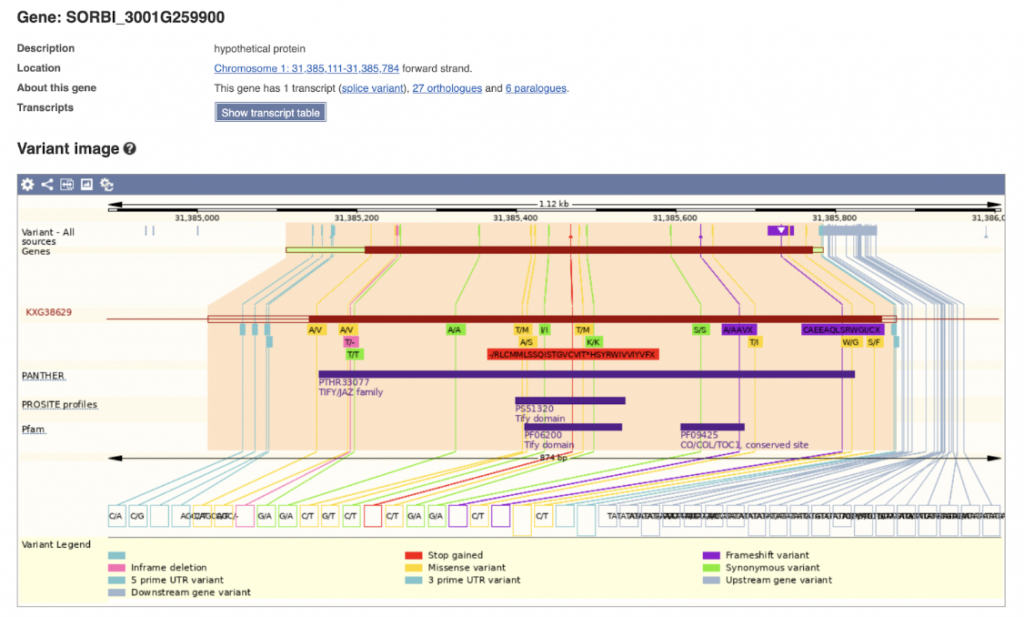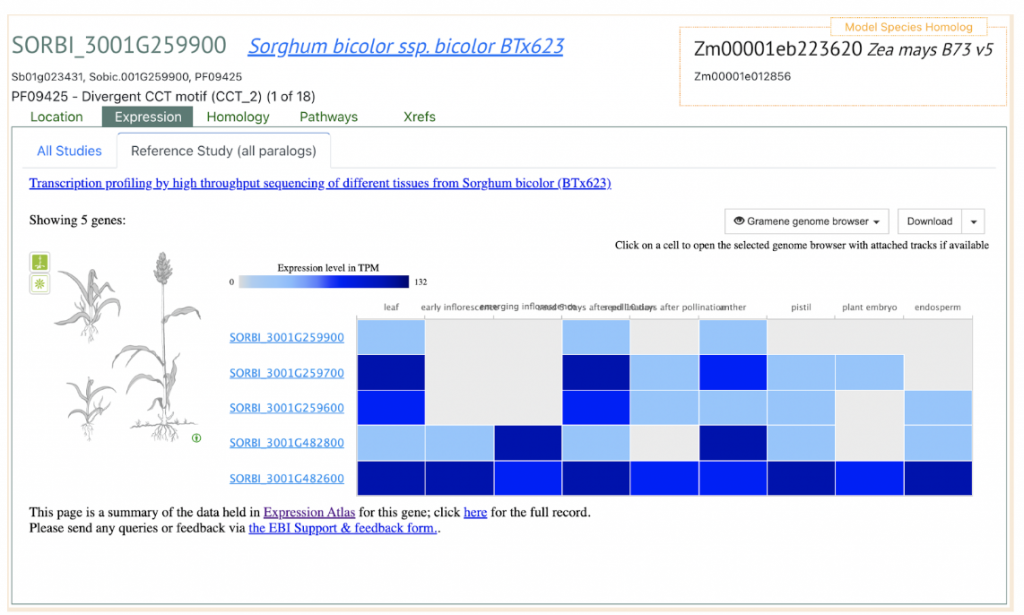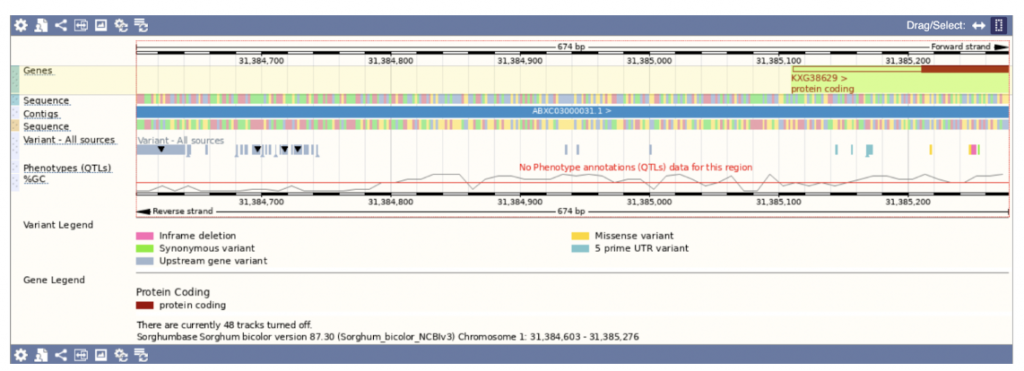Identification and Promoter Analysis of 18 Sorghum JAZ Genes with Critical Functions in the JA Signaling Pathway
Jasmonate ZIM-domain (JAZ) proteins are of great importance in stress-related defense through their role in repressing the jasmonic acid (JA) signal transduction pathway as well as phytohormone crosstalk. Scientists from Oklahoma State University and the USDA-ARS identified 18 sorghum JAZ (SbJAZ) genes using genome-wide comparison and domain scan analysis. The SbJAZ proteins all contain two highly conserved functional domains, TIFY and Jas, both of which have critical functions in the JA signaling pathway. Shrestha and Huang performed a phylogenetic analysis using 106 JAZ proteins from eight representative plants. O. sativa contains 15 JAZs genes, indicating that the higher number of JAZ genes in sorghum may be due to a duplication event in SbJAZ1-5. In an effort to identify stress-related cis-acting regulatory elements and transcription factors (TFs) the researchers also conducted an analysis of the promoter regions, which showed that SbJAZ5, SbJAZ6, SbJAZ13, SbJAZ16 and SbJAZ17 are rich in stress-related cis-elements. Expression profiling under four phytohormone treatments (JA, GA, ET, ABA) was performed on two Recombinant Inbred lines, one resistant to sugarcane aphid (SCA) (RIL 521) and the other susceptible to SCA (RIL 609). The expression profiling data suggest that SbJAZ9 and SbJAZ16 each have a role in JA-ABA crosstalk to regulate certain physiological processes.
SorghumBase Examples:



Reference:
Shrestha K, Huang Y. Genome-wide characterization of the sorghum JAZ gene family and their responses to phytohormone treatments and aphid infestation. Sci Rep. 2022 Feb 25;12(1):3238. PMID: 35217668. DOI: 10.1038/s41598-022-07181-9. Read more
Related Project Websites:
Dr. Yinghua Huang’s page at Oklahoma State University: https://plantbio.okstate.edu/faculty/faculty/135-bios/462-yinghua-huang

